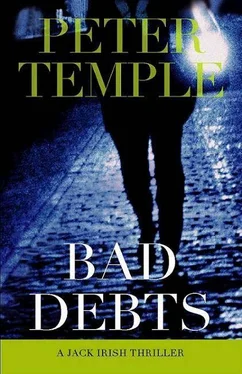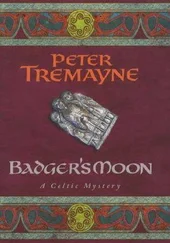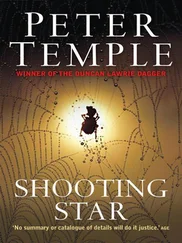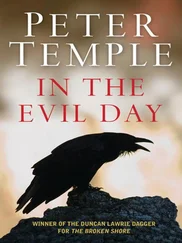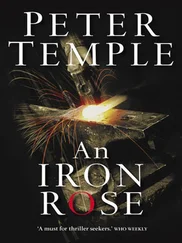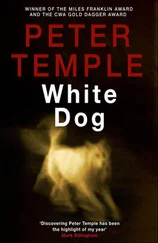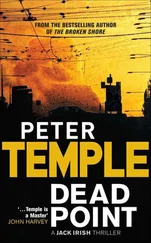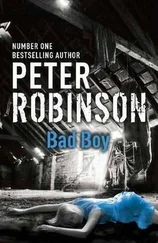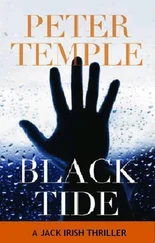I put my hand on his shoulder. ‘Mate, first look up “holiday” in the dictionary. It’s an experience you might want to try. Want to come to the football on Saturday?’
He screwed up his face. ‘We haven’t been to the football for a bit, have we?’
‘No,’ I said. ‘A lot of the same names still around though. Only it’s the sons.’
‘Fuck off. We’ll go. Have a steak afterwards. At Vlado’s.’ He paused. ‘Or Vlado’s son’s.’
Why did Danny McKillop want to see me so badly? I’d again put off ringing the number he’d left on the machine until I had him placed. The phone rang for a long time before a woman answered. I asked for Danny. There was a long silence. I could hear heavy traffic.
‘Danny’s not here.’ The phone went down. I dialled the number again. The woman picked it up straight away.
I spoke quickly. ‘Danny rang me. Left this number. Can you give him a message?’
Again, I listened to the traffic for a while before she spoke. ‘Danny’s dead,’ she said. ‘There’s no point in ringing here.’ Click.
I went to the window and watched the women from the pressing sweatshop across the lane on their smoko. They leant against the wall, laughing a lot, taking deep drags on their cigarettes. Then I looked up McKillop in the phonebook. There was a D. P. McKillop in Windermere Street, Northcote. I put my hand out to dial several times and withdrew it. Danny McKillop comes out of a black hole in my past, looks for me everywhere, and a few days later is dead. I opened the file I’d brought from Drew’s. Danny would have been in his late thirties. Died of what?
When I finally dialled the number, a child answered, a girl, four or five perhaps.
‘This is Kirsty McKillop speaking,’ she said in precise tones. ‘Mum’s hanging up the washing.’
‘Could I speak to her please, Kirsty,’ I said.
‘Hold on. I’ll call her.’
I heard her shouting, ‘Mum, a man’s on the phone, a man’s on the phone…’
When she came on, the woman was out of breath. ‘Hello, Sue McKillop.’
I said, ‘Mrs McKillop, sorry to bother you. Is that the home of Daniel Patrick McKillop?’
I could hear her breathing. ‘Danny died, was killed on Friday night.’ Her voice was flat, slightly hoarse.
‘I’m terribly sorry,’ I said. ‘My name’s Jack Irish. I was his lawyer once. He was trying to get hold of me last week, but I was away…’
‘Yes, well, thank you for ringing, Mr Irish.’
‘Forgive me asking, but how…’
She didn’t let me finish. ‘A policeman shot him. Murdered him.’ She was making a statement of fact.
‘Where did it happen?’ I asked the question without thinking, and as I did a chill came over me.
‘In a pub carpark. In Brunswick.’
‘What pub was-’
‘The Hero of Trafalgar.’
I never blamed myself for my wife’s death. Not then or now. A client of mine, Wayne Waylon Milovich, shot and killed Isabel in a parking garage in La Trobe Street. When he’d done that, he taped a letter addressed to me to her forehead and went back to his car, a 1974 Ford Falcon with one hundred and thirteen unpaid parking tickets against its number. He then detonated two or three sticks of gelignite on his lap. The letter went: ‘Mr Judas Lawyer Did You Now My Wife Run Away And Took My Kids While I Rotted In Jail Were You Sent Me Because You Wood Not Listen To What I Was Telling You As Your Clynt You Bastard.’
Deranged clients. It’s a risk you run. Isabel knew that. She practised family law, where practically all the clients are deranged to some degree. I didn’t blame myself. I just raged against fate. I couldn’t get that through to people. They kept telling me to stop torturing myself. They wanted me to blame myself. I wasn’t walking around drunk, crying in pubs, getting into fights with strangers because I was blaming myself. I was in a state of incoherent rage. I had lost someone who had cast a glow into every corner of my life. I was entitled to my feelings. Loss. Hate. Hopelessness. Worthlessness. Only the return of Isabel would have been enough.
Isabel and I were very different. Her childhood was the opposite of mine: she grew up in a fierce tribe of children, all lovingly neglected by their parents, a musician and a painter. She had emerged from the chaos clever, funny, diligent, dreamy, sensuous, and with an affection and concern for other people that descended indiscriminately like warm summer rain. She came into my habitual gloom and dispelled it, dissolved it, with one endless, helpless laugh.
After her death, I lost control for months. I would have put Wayne together again fragment by fragment just to tear him apart with my hands and teeth. I could not be still. I could hardly bear to sit down. I could not listen to music, read, exchange more than a few words with anyone. I slept only when hopelessly drunk; I woke within minutes, slick with cold sweat. All food tasted like dry oats and I did not eat for days on end. After I walked out on Andrew Greer, I drifted for months, driving without aim, drinking all day in sour little country pubs, lapsing into unconsciousness in the car or in some paper-walled motel room. I got arrested eventually in a sodden town in Queensland called Everton. Someone went through my wallet and got word to Andrew Greer. He pulled strings with a relative, a Cabinet Minister in the Queensland government, to get me off a variety of charges without a conviction. My car had vanished. We flew home together. I’d been in the cells for six days, hadn’t had a drink, was over the worst. I stayed at home for weeks, going out only to buy food, and then I began slowly to resume some sort of normal life.
Sitting in my office, elbows on the tailor’s table, thinking about Danny McKillop brought the darkness of those times back to me. I wasn’t over Isabel. I would never be over Isabel. She had made things complete, and they would never be complete again without her. I felt the pang of her absence every day, and at those moments I sometimes uttered an involuntary groan and shook my head like a dog.
Danny McKillop had been shot dead outside the pub where he was hoping I would come to meet him. I couldn’t just leave the matter there. I knew I should leave it there, but I couldn’t. At the worst time in his life, Danny had needed a sober lawyer. He had got me. Years later, he had turned to me again. And I didn’t show up. I must have got home around 6.45 p.m. Would I have gone to the Hero of Trafalgar if I’d listened to the messages on the answering machine instead of going to bed? Probably. I’d have cursed a lot, but I’d have got there by 7 p.m. Sydney Road was only minutes away at that time on a Saturday night.
The phone rang. It was Drew.
‘Seen the Herald?’
‘No.’
‘Daniel McKillop’s on page three.’
I got the paper at the corner shop. A small item on page three said:
Police have identified the man shot dead by police in the carpark of the Hero of Trafalgar hotel in Brunswick on Saturday night as Daniel Patrick McKillop, 34, of Northcote.
Assistant commissioner Martin Doyle said the fatal shots were fired after Mr McKillop pointed a pistol at policemen who saw him behaving suspiciously in the hotel carpark shortly after 7 p.m.
‘A full inquiry into the circumstances of Mr McKillop’s death is in progress, but we have no reason to believe that the officers acted improperly, Assistant Commissioner Doyle said. ‘They feared for their safety.’
Mr McKillop was released from prison several years ago after serving eight years for killing a woman in a hit-and-run accident.
There wasn’t anything to do except see Danny’s widow.
Sue McKillop was on the plump side, with short dark hair and an open face made to smile. Her eyes were red. She was wearing a green tracksuit.
Читать дальше
